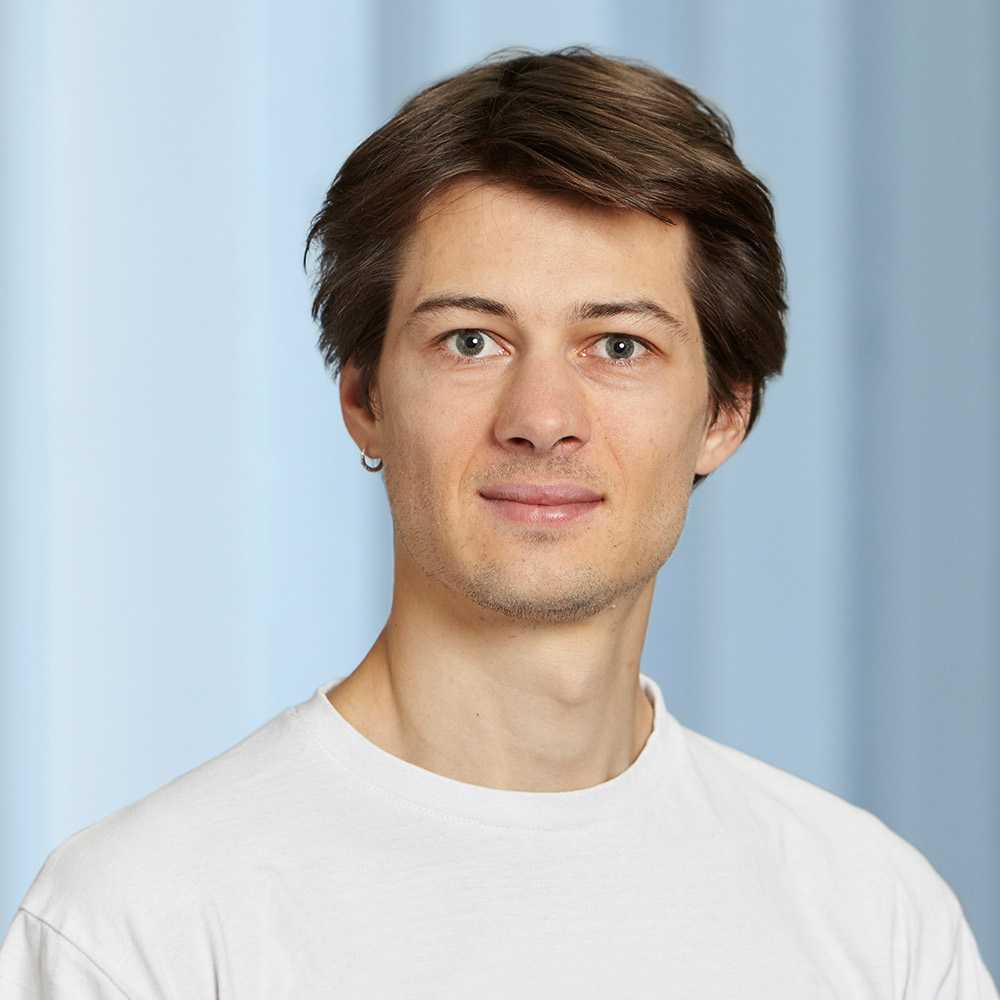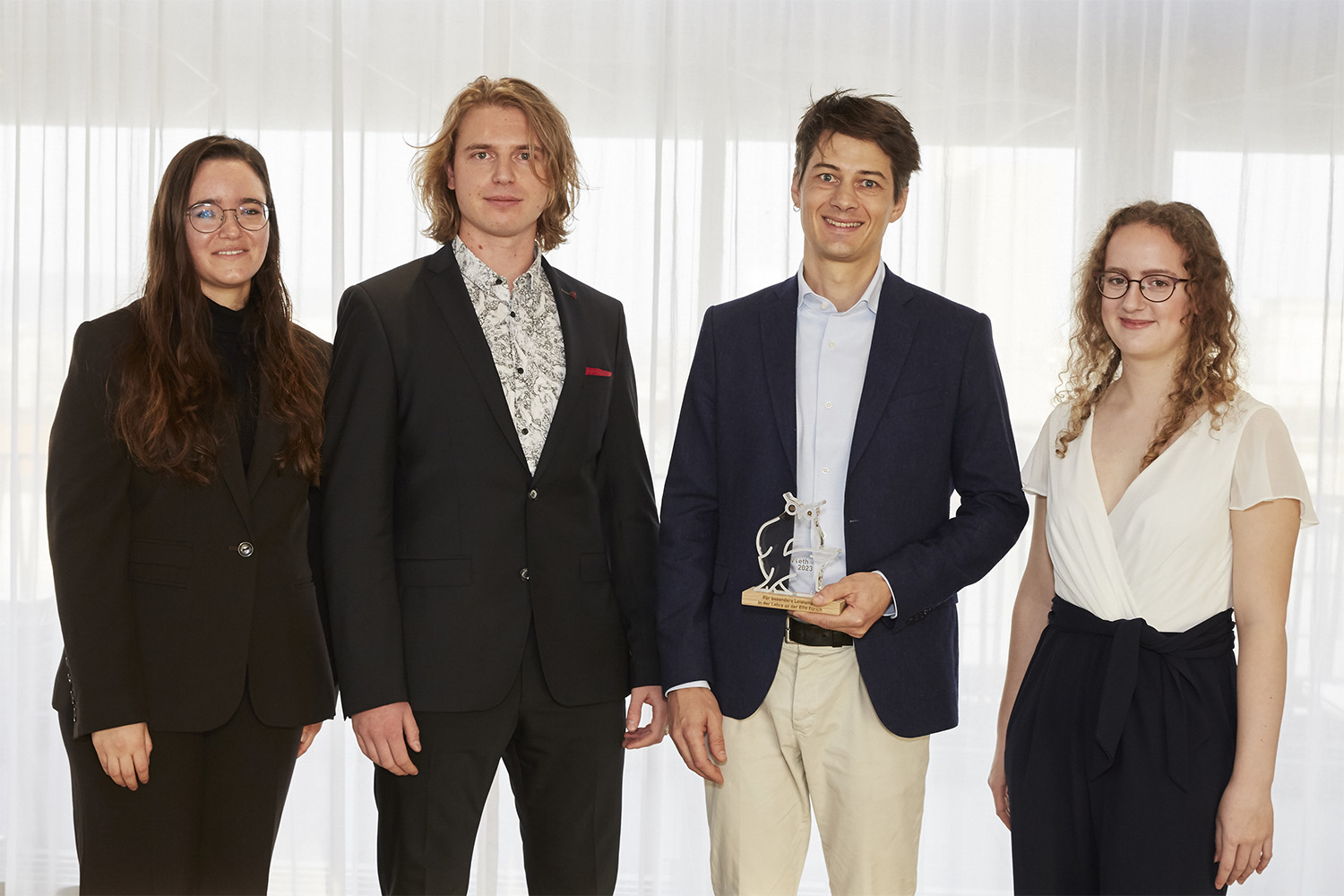Vincent Tassion receives 2023 Golden Owl
We are delighted to announce that the VSETH and VMP student associations have honoured Professor Vincent Tassion with the 2023 Golden Owl. In this interview, he talks about what the award means to him and the principles he follows when teaching maths.
How does it feel to receive the Golden Owl from the student associations?
To be honest, I didn't expect it at all, but I was very happy to receive an award from the students. In research I follow my own interests, but my teaching activities are designed for the students – so it's a fantastic feeling to receive positive feedback from them.
The Golden Owl honours lecturers for their excellence in teaching. What are the key principles that you follow in your teaching?
I often look back at my time as a student and what type of teaching I particularly liked. There are two key moments that I remember:
Once I took an analysis course by Cédric Villani in which he wrote just one formula on the blackboard and then discussed it for the rest of the lesson. I still remember that formula to this day. All Villani did was make a small initial contribution, then he left it to the students to develop the rest themselves. I always liked it when someone invited me to develop a theory myself instead of handing me everything I needed on a plate. I like to use this experience as a basis for my own teaching. Because mathematics is so broad, I try to remove things that don’t need to be there: my goal is to isolate the key concepts that are useful for the students to understand a theory, and the rest should come naturally. When you prove something in maths, the proofs might be very long but the essence is often contained in just a few ideas. I like to try to find that essence: less is more, especially in maths, which is such a creative discipline.

“My goal is to isolate the key concepts that are useful for the students to understand a theory, and the rest should come naturally.”Vincent Tassion
There is a second key moment that also inspired me a lot. As a Bachelor's student, I was taught the Russo-Seymour-Welsh theorem by Vincent Beffara. When he presented the argument, I was overwhelmed by its beauty. It triggered a positive feeling in me, not only because I understood the maths in and of itself, but also because it was so beautiful. It took me some time to realise that mathematics isn't all about rigour, rationality and objectivity: it’s actually a highly creative discipline in which taste plays an important role. I think it's important that students develop a kind of taste for what they enjoy so that they can say, "I like this topic" or "I don’t like this" – just like a piece of art that you would stop to look at. When I teach, I try to leave space for interpretation; for emotions. I try to emphasise messages like "I think this proof is very nice" or "be ready for a nice argument". The students don't necessarily share my opinion, but that doesn't matter – the main thing is that they develop a certain sensitivity and their own opinion.
Are there any other things that are important to you when organising your classes?
Interaction with the students is very important to me. It doesn't matter how large the class is, I always try to have a discussion with the students. And I'm often very impressed by their answers.
Teaching requires teamwork and the assistants play an essential role in this, so I also want to thank them sincerely for their dedication and outstanding work! In particular, I have worked closely with Laurin Köhler-Schindler for the last few years: I've thoroughly enjoyed preparing classes with him. I would like to take this opportunity to thank everyone who has helped the teaching activities run smoothly: the coordinators for their support in planning and organising courses, the secretaries, all the members of group 3, and my colleagues who have provided materials, tips and valuable discussions.
